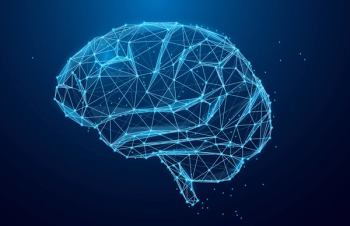
- Vol 39, Issue 2
Psychedelics and the Future of Psychiatry
Welcome to the psychedelic renaissance.
Over the past several years, we have witnessed a psychedelic renaissance, and a growing body of evidence suggests that several psychedelic compounds hold strong therapeutic potential for a wide array of mental health conditions.
Once dismissed as dangerous and having little therapeutic potential,
The term psychedelic was coined in the 1950s by psychiatrist Humphry Osmond, MD, and it literally means “mind-manifesting.” This class of drugs produces changes in perception, thought, and mood with minimal disorientation or confusion. Unlike alcohol,
Several US states and cities are in the process of legalizing or decriminalizing psychedelics like
The US Food and Drug Administration (FDA) has also shown interest in prioritizing the approval of certain psychedelic drugs. Both psilocybin- assisted psychotherapy for
Safety Issues and Scaling Up
The growing research results continue to confirm that psychedelic medicines are not only safe, but well tolerated by the majority of recipients. A psilocybin study found that cases of mental health complications following a psychedelic are rare (<0.1%) even in vulnerable populations (<0.2%), and rarer still with proper screening.5 Another study examined the classical
Results of other studies suggest psychedelics may have protective effects when it comes to mental illness in general. Pooling more than 190,000 adults, researchers evaluated the relationship of classic psychedelic use and psychological distress and suicidality. They found that lifetime psychedelic use was associated with significantly reduced odds of past-month psychological distress, past-year
More research is still needed to fully understand safety, especially in the context of at-risk conditions and mechanisms of action. However, the favorable safety profiles are opening doors for deeper exploration of these medicines.
MDMA
MDMA is unique in its ability to promote acceptance of and empathy for self and others. In addition to elevating oxytocin levels, MDMA stimulates the release of the monoamines serotonin, norepinephrine, and dopamine, resulting in improved mood and increased sociability.10 Brain imaging after administration of MDMA shows there is decreased amygdala activation and reduced fear response,11,12 allowing the patient to emotionally engage in therapy without becoming overwhelmed by anxiety or difficult emotions. The combination of medication plus psychotherapy represents a new frontier for the FDA, with unique challenges to be addressed such as therapeutic approaches and therapist training.
Psilocybin
Psilocybin, the main psychoactive component of “magic mushrooms,” is currently in phase 2 clinical trials for MDD. As a classic psychedelic, it is an agonist of serotonergic 5-HT2A receptors in the brain,13 which are particularly abundant in the cortex and regions associated with cognitive functions and social interactions.14 Stimulation of this receptor has been directly linked to cognitive flexibility, enhanced imagination, and creative thinking.15
In pivotal study results, 71% of individuals with MDD who received 2 doses of psilocybin were treatment responders, and half of the participants entered remission (
Concluding Thoughts
Psychedelic medicine is forging ahead as a promising new treatment paradigm, in which psychedelics, paired with psychotherapy, have the potential to treat various mental health conditions. Preliminary findings show successful results for these treatments, with significant clinical improvements and few—if any—serious adverse effects. The emerging results likely have implications for future psychiatric research, education, and policy—and most importantly, they are poised to offer new therapeutic options and improve the lives of those we serve.
Dr Robison is a board-certified psychiatrist and Chief Medical Officer of Novamind. He is the co-founder of Cedar Psychiatry and serves as the Medical Director for the Center for Change, a leading eating disorders center. Dr Robison previously served as a coordinating investigator for the MAPS-sponsored MDMA-assisted psychotherapy study of eating disorders.
References
1. Oregon psilocybin services. Oregon Health Authority. Accessed December 5, 2021.
2. COMPASS Pathways receives FDA breakthrough therapy designation for psilocybin therapy for treatment-resistant depression. News release. COMPASS Pathways; October 23, 2018. Accessed December 5, 2021.
3. Brooks M. FDA grants psilocybin second breakthrough therapy designation. News release. Medscape Medical News; November 25, 2019. Accessed December 5, 2021.
4. FDA grants Breakthrough Therapy designation for MDMA-assisted psychotherapy for PTSD, agrees on special protocol assessment for phase 3 Trials. News release. Multidisciplinary Association for Psychedelic Studies; August 26, 2017. Accessed December 5, 2021.
5. Studerus E, Kometer M, Hasler F, Vollenweider FX.
6. Krebs TS, Johansen PØ.
7. Heal DJ, Gosden J, Smith SL.
8. Hendricks PS, Thorne CB, Clark CB, et al.
9. Mitchell JM, Bogenschutz M, Lilienstein A, et al.
10. Hysek CM, Schmid Y, Simmler LD, et al.
11. Bedi G, Phan KL, Angstadt M, de Wit H.
12. Hake HS, Davis JKP, Wood RR, et al.
13. Tylš F, Páleníček T, Horáček J.
14. Celada P, Puig M, Amargós-Bosch M, et al.
15. Vollenweider FX, Preller KH.
16. Davis AK, Barrett FS, May DG, et al.
17. Carhart-Harris RL, Bolstridge M, Day CMJ, et al.
18. Agin-Liebes GI, Malone T, Yalch MM, et al.
Articles in this issue
almost 4 years ago
New Directions for Insomnia and Bipolar Disorderalmost 4 years ago
A Simple Concept With Complex Implicationsalmost 4 years ago
Spotlight on Issues in ADHDalmost 4 years ago
To Disclose or Not to Disclose? Lessons From a Dying Therapistalmost 4 years ago
Dress Rehearsalalmost 4 years ago
Malingering as a Maladaptive Pattern of Survival During the Pandemicalmost 4 years ago
Clozapine: Increased Risk of COVID-19 Severity?almost 4 years ago
10 Factors to Consider When Cross-Titrating AntipsychoticsNewsletter
Receive trusted psychiatric news, expert analysis, and clinical insights — subscribe today to support your practice and your patients.







